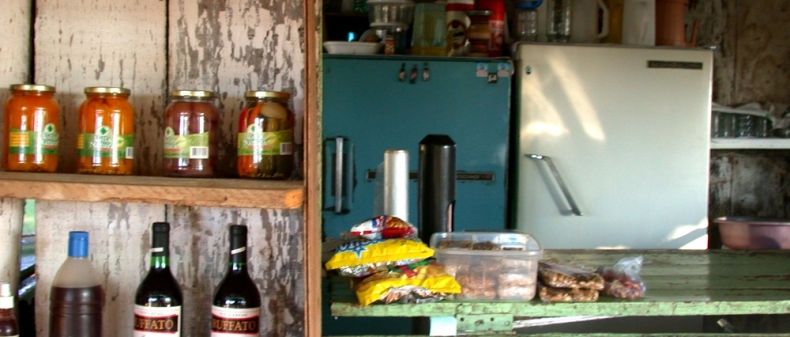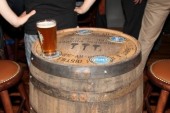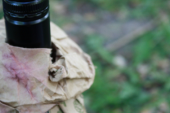
How long will wine keep in the fridge?
This is an important and very practical question. I often have many bottles of wine open at the same time, more than I could possibly drink in a day (a hazard of the occupation). These usually end up on the counter or in the fridge, stoppered, to be revisited later. Because of my twisted mind, I actually enjoy torturing wines over several days or even weeks, keeping these open bottles around and tasting them from time to time just to see how they’ve changed, whether they’re still alive or dead — it can reveal much about the integrity and composition of the wine, and if it’s ultimately cellar-worthy. So I have considerable experience in the matter. But because your motivation is likely not torture, but rather simply to know if the wine will still be enjoyable when you get around to drinking it, here are a couple of things I’ve learned.
Once open, all wine will head down the inexorable path towards vinegar, the only true end for fermented grape juice. How quickly it travels down that path depends on a few factors, but frustratingly, there’s no easy-to-remember, straightforward relationship between wine region or grape variety and stability. Like all things related to wine, it’s complicated.
Perhaps counter-intuitively, wines that are exposed to more oxygen (i.e. wines aged in wooden barrels) during the winemaking process tend to be more stable later on. This “oxidative” character is part of the intended wine style. In essence, because they are already slightly oxidized when they reach the bottle, they’re more stable and better able to withstand exposure to air once uncorked. I once tortured a decidedly oxidative white wine from Georgia for over a month. By the end of my experiment, it was just starting to open up.
On the other hand, wines that have been zealously protected from oxygen since birth and bottled very young, fresh and fruity, die fastest. Just imagine taking Maria from the Sound of Music out of the convent, and rather than the bucolic pastures of the Austrian Alps, dropping her at the corner of Jane and Finch. Zero chance for survival longer than a few minutes. Some exposure to the elements is needed to toughen up the wine.
The good news in all of this is that even light, un-oaked, fruity white and red wines last longer than you think: 2-3 days is more or less standard without sacrificing much. Even past this point they’re still drinkable, just a little less aromatic and fruity. It would take probably a month at high temperatures to turn them to vinegar. Big robust reds can chill out for a week or even longer, and some actually improve. Oxidative-style wines like sherry, madeira, tawny port, vin jaune and the like change little over a month, or even longer. Crazy Georgian wines aged in amphorae for years before bottling need a month to open up.
As a rough guideline, wines that are candidates for long ageing in the cellar are the ones that will also last the longest once opened (see my earlier article on wines to drink young and wines to age). However, in my experience, old wines of any colour fair badly; they are too delicate and oxidize after even a day.
The refrigerator, or any cool environment, is in any case the best option. Lower temperature means slower chemical reactions (oxidation), which will in turn extend the ‘shelf-life’ of an open bottle. Even better is to keep an empty half bottle around for those (hopefully rare) occasions when you don’t finish the bottle. Pour the leftovers out of the 750ml into a clean 375ml (assuming you have less than half a bottle leftover), and store the stoppered half bottle in the fridge. The smaller container means less exposure to oxygen, which is what kills wine after all, and you can likely double or triple the lifespan.
There are many other gadgets and preservation systems available, like vacuum pumps, floating disks and nitrogen sprays. And while these will also extend the shelf like of open wines, nothing is more effective than finishing the bottle.
____
John Szabo is a master sommelier and wine writer for Toronto Standard. You can follow him on Twitter at @johnszabo.
For more, follow us on Twitter at @TorontoStandard, or subscribe to our newsletter.














